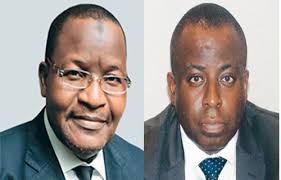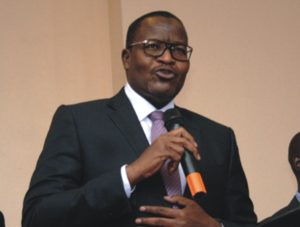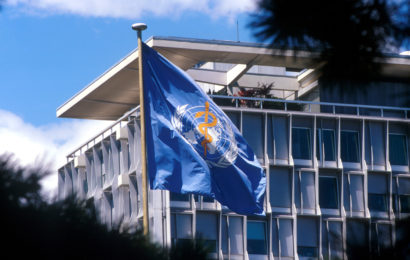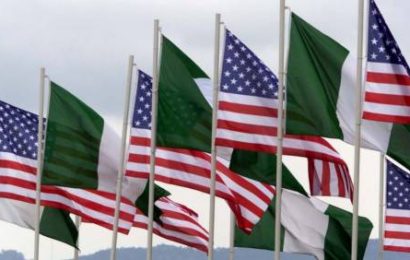- NCC is
 relentless says Danbatta
relentless says Danbatta
Association of Telecommunication Operators of Nigeria (ATCON) has said there are six issues that have constituted a threat to investment friendly and enabling environment in the Information Communication Technology (ICT) sector which the Nigeria Communications Commission (NCC) needs to address without delay.
Without appropriate and immediate redress on the six issues identified, the telecommunication operators through its umbrella body said the chances of the sector to improve its 9% contribution the nation’s Gross Domestic Product (GDP) is slim.
President of ATCON, Mr. Olusola Teniola, made this known at a recent stakeholder forum which was held to formally welcome Executive Vice Chairman; NCC, Professor Umar Danbatta to the industry, in Lagos.
Teniola said, “for the continuous development of the nation ICT sector, there are some issues that have constituted a threat to investment friendly and enabling environment for our members and these are:
“national broadband plan-implementation; approval of draft national ICT policy; foreign exchange impact viz-a-viz network roll-out; proposed 9% communications tax Bill; local content within ICT sector, and dumping of counterfeit phone. We need anti-counterfeiting measures”.
DUMPING OF COUNTERFEIT PHONES IN NIGERIA 
The sixth point which is dumping of counterfeit phone, is a new growing problem for the industry, hence ATCON pleaded with the Government to put in place anti-counterfeiting measures such as the facilitation of integrated Web portal based IMEI-IMSI collection to stem the menace of substandard or unregistered mobile phones circulating in Nigeria.
Poor quality of service, loss of revenue to the government, loss of business by OEMs and loss of jobs as well as in revenue to the Nigeria mobile market are some of the influx of the substandard phones.
“For instance, we have more than twenty mobile phone brands that do not have NCC type approved in Nigeria. These unregistered/unapproved brands have over one hundred and fifty mobile phone models circulating in Nigeria
DANBATTA’S RESPONSE
Responding on the honour done on him, Professor Umar Danbatta thanked the industry stakeholders led by ATCON for making out time to honour him and NCC for their efforts to address quantum of challenges in the sector.
He said that one year after he assumed office, NCC has vigorously followed critical measures to achieve its mandate tied to the eight-point agenda the Commission unveiled earlier in the year.
He said that the Commission has put in place various strategies that will enable it become a responsive, world-class communications regulatory organization that promotes a market driven communications industry that fosters universal access to Information and Communications Technology for all Nigerians.
He said that in whole, the essence of the 8-point agenda is to promote innovation, investment, competition, and consumer empowerment in and on top of the communications platforms of today and the future – maximizing the power of information and communications technology to grow our economy, create jobs and enhance national competitiveness through the deployment of broadband infrastructure to facilitate rollout of broadband services that will hold out opportunities and higher network quality of service for all Nigerians.
He pledged NCC’s commitment to aiding industry growth my engaging critical stakeholders at Federal, States and Local Governments levels to foster cordial relationship for the protection of critical telecom assets and provisioning of better business climate.
The Senate in November 2015 confirmed Prof. Umar Garba Danbatta as Executive Vice Chairman (EVC and Chief Executive of the Nigerian Communications Commission (NCC).
He was appointed in acting capacity by President Muhammadu Buhari on August 4, 2015 following the expiration of the tenure of Dr. Eugene Juwah.
Before his appointment, Prof. Danbatta was the Acting Vice-Chancellor, Kano State University of Science & Technology, Wudil.
Born in Danbatta Local Government Council of Kano State, Prof. Danbatta obtained his BEng and MSc degrees from the Technical University of Wroclaw in Poland and his PhD from the University of Manchester Institute of Science and Technology (UMIST) UK.
He served as a lecturer in the Department of Electrical Engineering, Faculty of Technology of Bayero University Kano for 28 years, where he taught courses in telecommunications engineering and electronics and held academic positions of Dean of the Faculty and Head of Department. His main responsibilities, in the university, included Deputy and Acting Dean of Students’ Affairs, Administrator of the Works Department and later, Director of the Centre for Information Technology (CIT).
Prof. Danbatta was also a member of over 60 university committees and task forces, including numerous stints as Chairman. In administrative and other responsibilities outside the university, he has served on over 20 committees, prominent among which was his Chairmanship of the implementation Committee of pioneer Deputy and Acting Vice-Chancellor when it took off in 2001. Prof. Danbatta has supervised more than 60 PhD, MEng and BEng projects in diverse areas of telecommunications.
He has to his credit more than 50 articles in journals, conference proceedings and technical reports. He is also the author of a six-chapter, 167-page book titled Elements of Static Engineering Electromagnetics.
Prof. Danbatta is a recipient of 18 distinguished awards and certificates of honour. He has served two terms of five years as a Member of Council for the Regulation of Engineering in Nigeria (COREN), and is also a COREN registered Engineer and member of the Nigerian Society of Engineers (NSE).
Prof. Danbatta was Vice President of the Digital Bridge Institute (DBI), International Centre for Advanced Communication Studies, Kano campus, which was established in the year 2004 by the Nigerian Communications Commission (NCC) to build capacity for the Nigerian/African telecom industry in the diverse areas of Information and Communication Technology (ICT). While at DBI, he developed expertise in major areas of ICT implementation policy.








